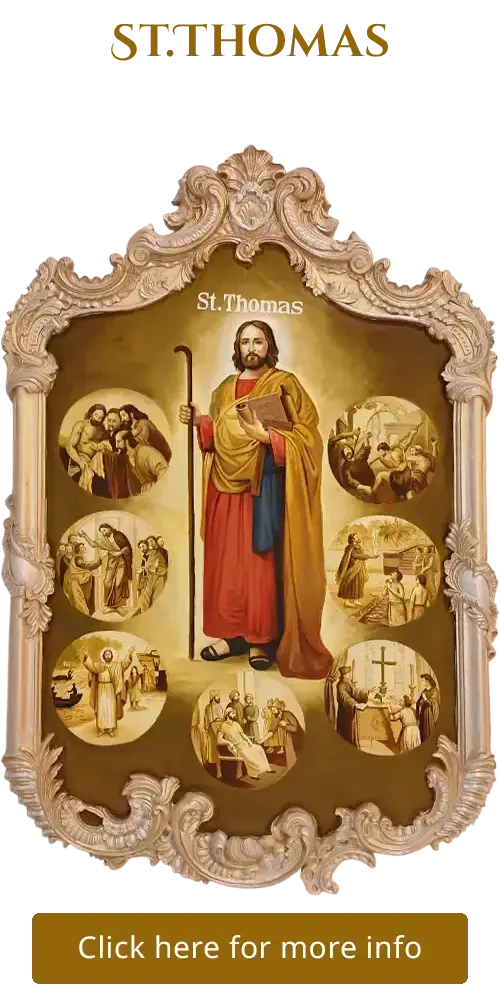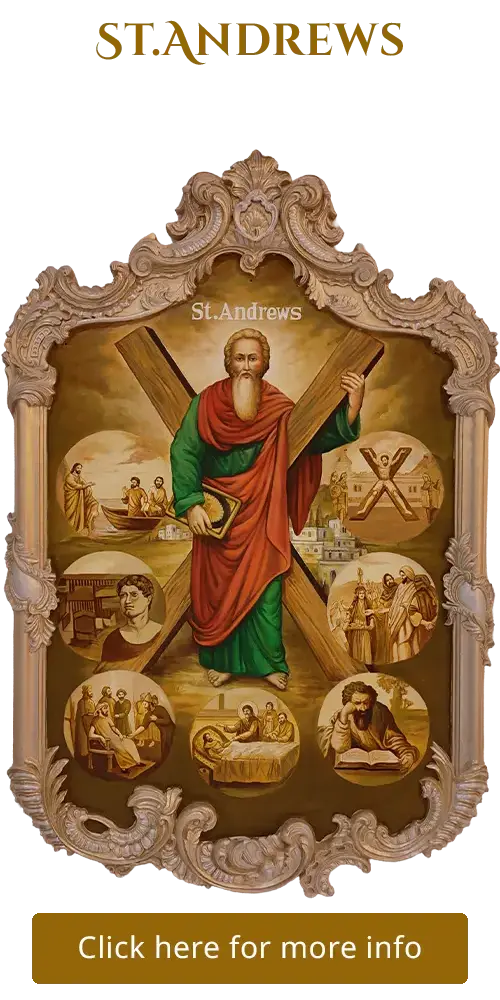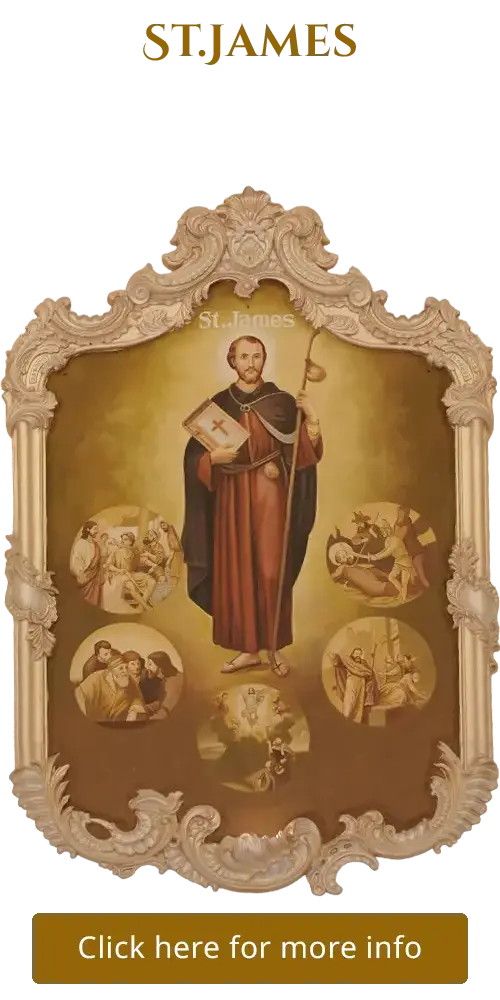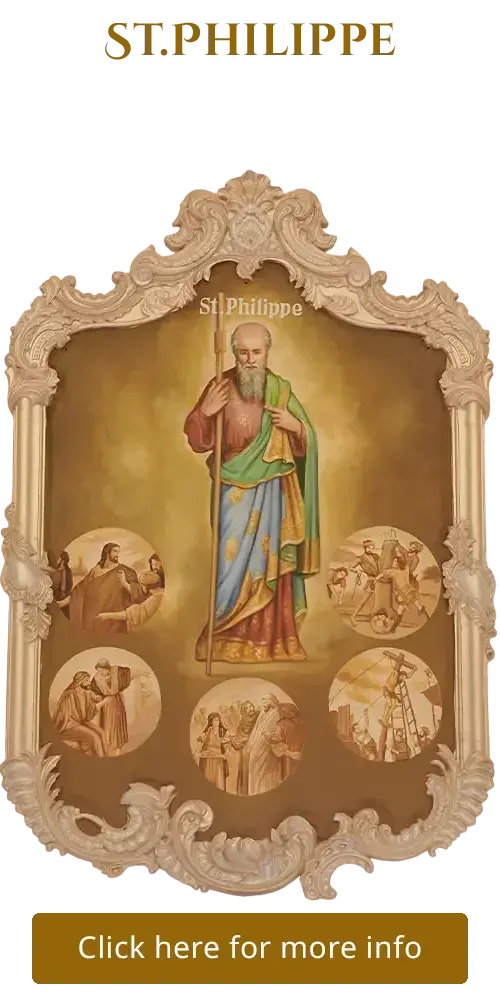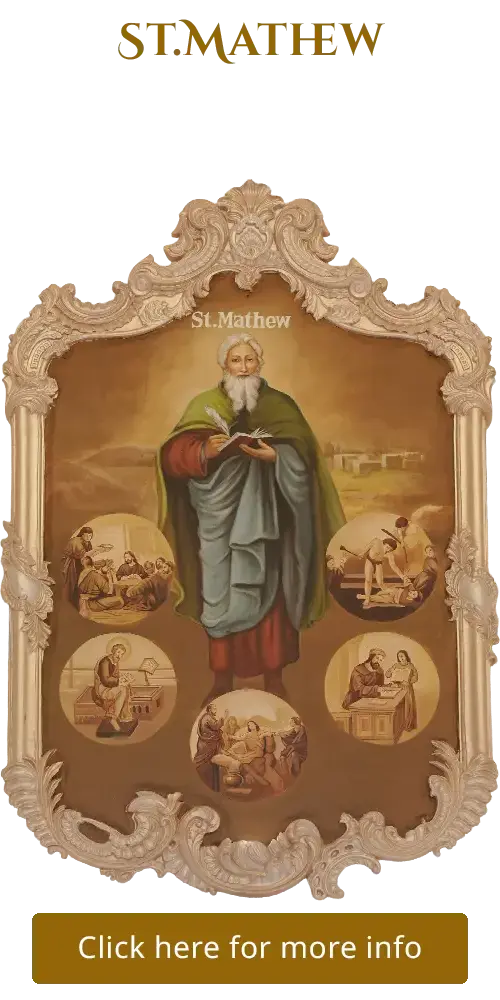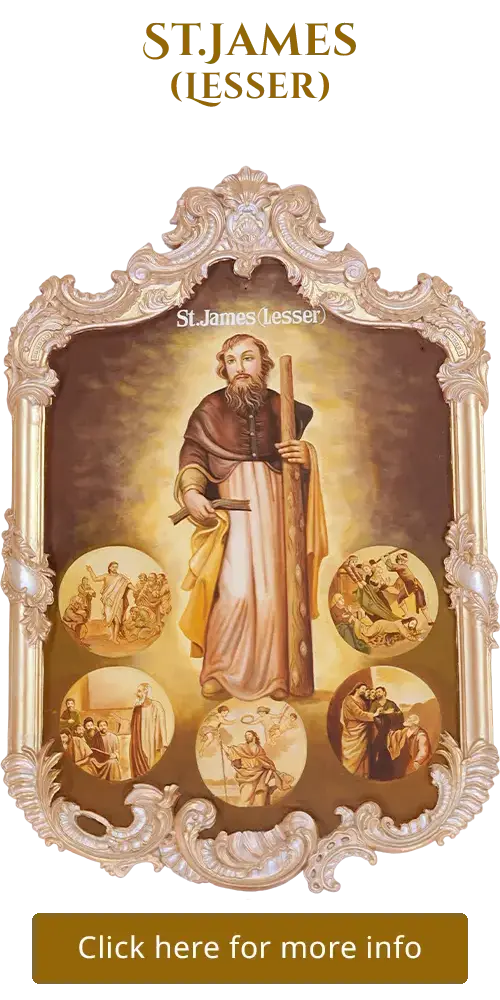St. Mathew
Inside Paintings - North Wall
St. Matthew
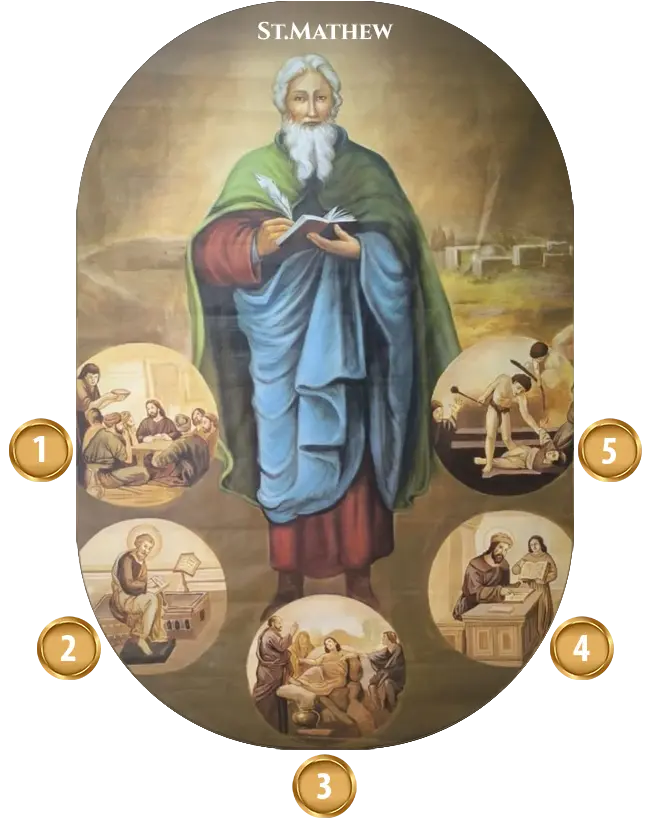


1. Feast in the House of Levi (or Matthew)
Biblical Reference: Luke 5:29, Luke 15:1-2, Matthew 9:10, Mark 2:15.
Description: Matthew, also known as Levi, was a tax collector whom Jesus called to be one of his disciples.
After his call, Matthew hosted a great feast in his house, inviting Jesus and a large number of tax collectors and others, which drew criticism from the Pharisees and scribes.
This event highlights Jesus’s mission to call sinners to repentance and his willingness to associate with those considered outcasts by society.
2. Saint Matthew, an evangelist writing his Gospel.
Historical Reference: Early Christian tradition and writings.
Description: The Gospel of Matthew is the first book of the New Testament of the Bible and one of the three synoptic Gospels.
This gospel was primarily written for a Jewish audience and emphasizes Jesus as the fulfillment of Old Testament prophecies. It includes the Sermon on the Mount and the Great Commission, highlighting Jesus’ teachings and His call to spread the gospel to all nations.
Matthew, alone among the gospels, alternates five blocks of narrative with five of discourse, marking each off with the phrase “When Jesus had finished”.
3. Saint Matthew Resurrecting the King's Son
Historical Reference: Apocryphal texts, specifically the Golden Legend by Jacobus de Voragine.
Description: After the Ascension, he left to evangelize Ethiopia, where he resurrected the king’s son and prevailed over two magicians who had set themselves up to be worshipped as gods. Many years later he died as a martyr, decapitated, stoned or burned alive by order of the next king.
4. St.Matthew writing the Gospel with an angel holding the volume
Historical Reference: Early Christian tradition and writings.
Description: The angel represents the divine source of Matthew’s inspiration, indicating that his Gospel is not merely his own writing but a divinely revealed text.
This imagery emphasizes the belief that Matthew’s Gospel was written under the influence and guidance of the Holy Spirit.
5. Martyrdom of St. Matthew
Historical Reference: Early Christian writings and tradition.
Description: St. Matthew is believed to have been martyred for his faith. According to some traditions, he was martyred in Ethiopia, while others suggest Persia. The manner of his death varies in different accounts: some sources say he was killed by a sword, while others mention being staked or burned. Regardless of the specific details, it is widely held that Matthew died as a martyr, faithfully witnessing to the gospel until the end. His feast day is celebrated on September 21 in the Western Christian tradition and November 16 in the Eastern Orthodox Church.


